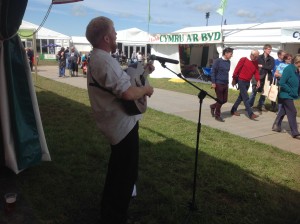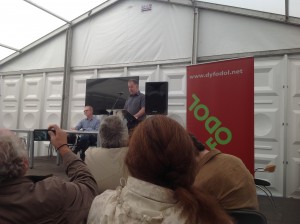This is a very ambitious strategy in terms of increasing the number of Welsh speakers. If this had been a priority for the Welsh Government from the start, we would be well on the way to seeing Welsh as being the normal language for a new generation of speakers.
Theme 1 is admirable. It includes an emphasis on passing on the language within the family – the foundation of all language planning. There is an emphasis on the early years and then on significant increase in Welsh language education. The second theme is the Welsh language in the workplace and the social use of the language. This again is appropriate. Theme 3 also notes key areas; the community and the economy and widespread language planning.
Is there any room for doubt? We would certainly wish to praise this strategy, but the devil is in the detail.
The section ‘Community and the Economy’ states the ambition, but is skimpy on action. It mentions land planning, but surprisingly does not seem to mention planning in relation to housing, and this is a matter that must be addressed. The action plan that accompanies the strategy mentions the publication of the Technical Advice Note 20, which encompasses planning and the Welsh Language, but there is no mention of the role of planning authorities or how local authorities can set viable language targets within their Local Development Plans. This is a glaring omission.
The section on the social use of the Welsh language is enlightened in terms of principle, but short on practical steps to reach the goals. Although the Welsh Government has supported the the establishment of Welsh Language Centres in the past, there is no suggestion that this support will continue. In our opinion, the creation of such centres in in towns and villages across Wales is essential, and this can be tackled creatively, by contributing to existing structures, enabling them to develop as Welsh Language Centres, per the nature of the area being served.
It is good to see that there is a wish to create more informal opportunities for young people aged 14 – 19 to use the language. We need to be careful, though, as this need already exists for those in Welsh language education, before risking spreading resources too thinly for those who attend English-medium schools.
Much of the strategy deals with the expansion of the Welsh language within education. This again is admirable, but practical difficulties arise. Dyfodol i’r Iaith’s Chair had a meeting with education officers in Swansea two days after the publication of the strategy. It became clear that they were unaware of the strategy. Furthermore, they were expected, like all other authorities, to present funding applications to the Government for the development of schools under the 21st Century Schools scheme by the end of July this year. £600 million is available, but applications had to be submitted before the Government approved the authorities’ Welsh Language in Education Strategic Schemes. It became obvious that there was no connection between the strategy, the authorities’ own Welsh Language Education Plans, and the 21st Century Schools funding. This funding covers the period 2019-24. It is likely that if round goes ahead, that no funding will be allocated in relation to the strategy until the next round in 2024, thus losing 7 years of funding.
Therefore Dyfodol i’r Iaith has asked the Government to delay this funding process for six months, to allow local authorities to adopt the Government’s vision of rapid growth in Welsh language education. Without this, it is sure to fail to reach the targets. Another basic problem with the strategy is lack of funding. If the Government wishes to see rapid progress in terms of increasing the number of Welsh speakers, then it must invest significantly in training teachers and restructuring schools. Some resources are being used now for year-long courses to teach Welsh to teachers, but this is limited, and falls short of achieving the growth targets.
We need to ask whether the Government has been blinded by calls to create a million Welsh speakers, and to transform the English schools’ system, much need as this is. Although these are praiseworthy aims, there is a danger that they are unrealistic, and the dream can rapidly turn to nightmare. In order to reach the target of a million speakers, it has been calculated that 50% of 7 year olds in Wales need to be in Welsh-medium education by 2030. This would mean increasing the number of Welsh-medium schools from 400 to 800. To achieve this, 6-8000 additional Welsh teachers would be needed. Knowing that the number of potential teachers is currently getting smaller, a sense of reality is required.
It is clear to us that realistic and believable policies are required, we need to start from where we stand in relation to all relevant areas. The truth of the matter is that we need to establish a powerful Language Authority, which will formulate a national language scheme to carefully map how the different aims may be reached, and ensuring close coordination between all Government departments. Achieving this will require adequate and not insubstantial funding.



